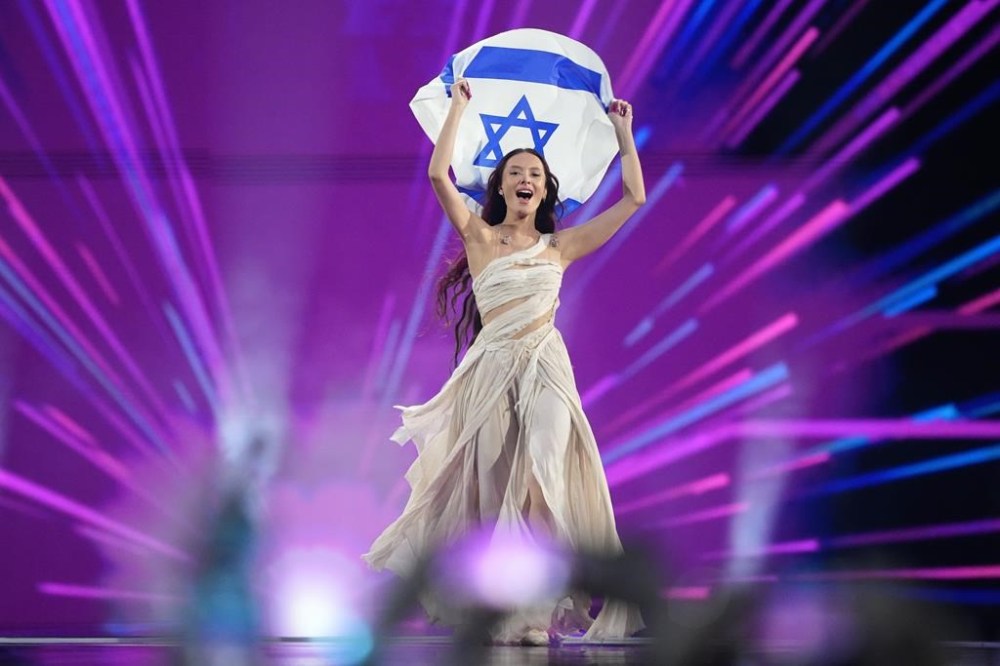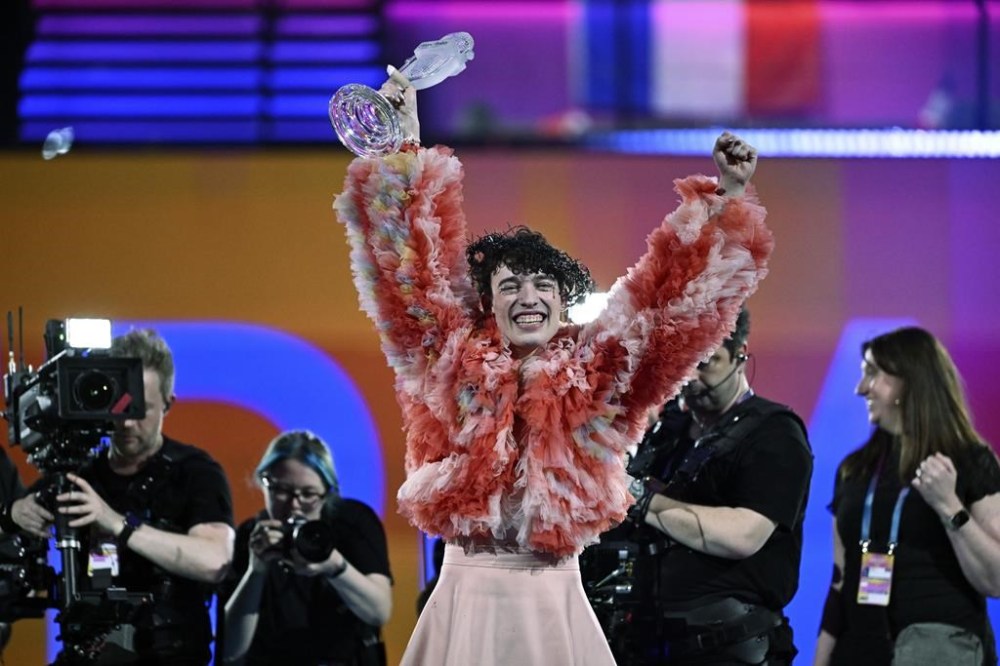The EU is angry that Eurovision banned the EU flag from the song contest and wants to know why
Advertisement
Read this article for free:
or
Already have an account? Log in here »
To continue reading, please subscribe:
Monthly Digital Subscription
$0 for the first 4 weeks*
- Enjoy unlimited reading on winnipegfreepress.com
- Read the E-Edition, our digital replica newspaper
- Access News Break, our award-winning app
- Play interactive puzzles
*No charge for 4 weeks then price increases to the regular rate of $19.00 plus GST every four weeks. Offer available to new and qualified returning subscribers only. Cancel any time.
Monthly Digital Subscription
$4.75/week*
- Enjoy unlimited reading on winnipegfreepress.com
- Read the E-Edition, our digital replica newspaper
- Access News Break, our award-winning app
- Play interactive puzzles
*Billed as $19 plus GST every four weeks. Cancel any time.
To continue reading, please subscribe:
Add Free Press access to your Brandon Sun subscription for only an additional
$1 for the first 4 weeks*
*Your next subscription payment will increase by $1.00 and you will be charged $16.99 plus GST for four weeks. After four weeks, your payment will increase to $23.99 plus GST every four weeks.
Read unlimited articles for free today:
or
Already have an account? Log in here »
Hey there, time traveller!
This article was published 13/05/2024 (554 days ago), so information in it may no longer be current.
BRUSSELS (AP) — The Eurovision song contest continued to spawn unprecedented controversy, days after the winner was crowned, with the 27-nation European Union lambasting organizers for their “incoherence” in banning its flag from the concert hall during the final.
In an unusually sharp letter, EU Commission Vice President Margaritis Schinas wrote to the organizer, the Swiss-based European Broadcast Union, that its ban contributes to “discrediting a symbol that brings together all Europeans.”
In a contest already full of controversy, the European Commission said Monday it plans “a very lively discussion” with the organizers over the ban. Even though the 27-nation EU did not compete as such, many of its member states did, and the star-spangled blue flag is often seen as a unifier for all involved.

Schinas wrote that “such actions have cast a shadow over what is meant to be a joyous occasion for peoples across Europe and the world to come together in celebration.”
The flag is on show at countless events and across the EU nations and often flies alongside the national colors from tiny city halls to massive governmental buildings.
Schinas was especially bitter since the ban came only a month ahead of EU-wide parliamentary elections where the EU as an institution is fiercely debated and often attacked by extremist parties.
“The incoherence in the EBU’s stance has left myself and many millions of your viewers wondering for what and for whom the Eurovision Song Contest stands,” the letter said.
During the weeklong contest, organizers were already roiled by the protests linked to the war in Gaza and Israel’s participation in the event on top of the disqualification of the Dutch participant. Swedish police said Monday that Joost Klein will likely be charged for making illegal threats. The nature of the alleged threats was not disclosed.

Ahead of the final, a spokesperson for the European Broadcasting Union said ticket holders were only allowed to bring and display flags representing participating countries, as well as the rainbow-colored flag, which is a symbol for LGBTQ+ communities.
Swiss singer Nemo won the 68th Eurovision Song Contest Saturday night with “The Code,” an operatic pop-rap ode to the singer’s journey toward embracing a nongender identity.

